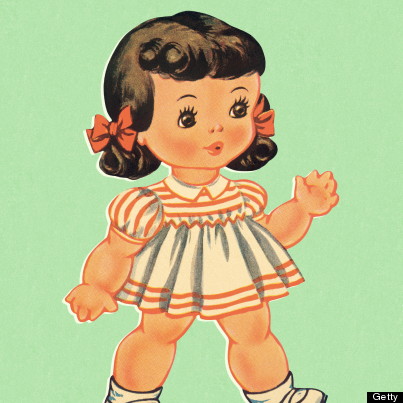Almost everybody loves sweet things -- though some people seem to outgrow their taste for sweets in later life. Almost everybody responds to sexy bodies, sexy clothes, sexy dances with twinges of lust, though some people develop eccentric tastes in sexiness. Almost everybody responds with tenderness and delight to cute babies and toddlers, even childless people who say they can't stand children. And of course most people have a funny bone, a sense of humor, though once again, tastes differ.
 Getty
Getty
The first three of these natural propensities are obviously beneficial. It stands to reason that we should be wired up with a love of sugar since it is nature's most efficient energy source, and evolution has secured this adaptation for us. Like bears and rats and other omnivores, we have a built-in desire for sweet things, not an acquired taste but a natural instinct. Similarly, the messy, dangerous, time-consuming business of reproduction would be neglected by us if we weren't equipped as all other animals are with a powerful reward system that makes sexual activity a high-priority agenda item. The persistence of our species depends on it. And research shows that our finding babies cute is no quirk of culture or optional effect of fashion but a worldwide trait that reaches beyond Homo sapiens. In "altricial" species, in which offspring require considerable parental care to reach self-sufficiency, the young tend to have "baby faces," which apparently provoke nurturing and cuddling behaviors in adults of the species. (Babies are so much trouble, if they weren't so cute, they'd be doomed! We're wired up to honor cuteness with care.)
The important lesson from evolutionary thinking here is that it is a mistake to think that first there was sweetness, sexiness, and cuteness, and then we evolved to love these properties. That's just about backwards; these properties came into existence as effects of our tastes for them. This is a strange inversion of reasoning, but it's right.
 Getty
Getty
What about funny? What is funny for? It must be important, mustn't it? We spend billions of dollars annually on candy and cookies, sexy advertising and pornography, and the cute mice, bears, dragons, and fish of the animated film industry, but we also spend billions on comedy -- funny movies, funny television, funny books, and comedians. We pay good money, and stand in line, and even take time out from eating and making love to satisfy our voracious appetite for humor. Why do we have the taste at all? What good is a funny bone? Other species don't seem to need one.
And why has it taken so long for someone to realize that this is an important puzzle? Analyses of humor have been devised for several millennia, going back to Aristotle, and many different theories have been contrived and defended, but until now they have all just taken for granted that humor is something we enjoy. "Isn't it obvious? We like comedy because it's funny!" The trouble with this answer is that it's too obvious. It is parallel to "We like honey because it is sweet!" and "We like to look at pornography because it's sexy!" and "We cuddle babies because they are cute!" These are circular answers, utterly uninformative. Why should sweet and sexy and cute exist at all? Evolution shows us how each of these properties came into existence in the elaboration of life on this planet, and we need a similar explanation for our puzzle about the existence of funny. If we had a nearly universal desire to fill our ears with sand while jumping up and down, we'd find that puzzling, and demand an explanation. What good does it -- or did it -- do for us to have this weird obsession? Humor is, from a Martian point of view, just as weird.
 Getty
Getty
The point of my TEDTalk was to expose this puzzle, and get people to wonder what could possibly be the evolutionary solution. The solution comes later. Matthew Hurley, Reginald Adams and I have asked the question -- for the first time, really -- and answered it, in our book Inside Jokes: Using Humor to Reverse-Engineer the Mind (MIT Press, 2011).
The answer is complicated and surprising. It turns out that today's humor is designed to tickle a brain system that evolved to reward us for detecting all the tiny mistakes we make while rushing to make sense of the world. We jump to conclusions while making time-pressured decisions about which patterns to attend to; catching these errors before they contaminate our thinking is computationally expensive, so the brain rewards itself for doing the dirty work. Comedy is chocolate cake for the funny bone.
Ideas are not set in stone. When exposed to thoughtful people, they morph and adapt into their most potent form. TEDWeekends will highlight some of today's most intriguing ideas and allow them to develop in real time through your voice! Tweet #TEDWeekends to share your perspective or email tedweekends@huffingtonpost.com to learn about future weekend's ideas to contribute as a writer.